The Best Mulch For Tomatoes: Top Picks To Grow Juicy Delicious Tomatoes
Introduction
Tomatoes are a delicious and versatile vegetable that can be enjoyed in many different ways. But in order to grow juicy, delicious tomatoes, it's important to provide them with the right conditions. One of the most important things you can do for your tomato plants is to mulch them.
Mulch is a layer of organic material that is placed around the base of plants. It has many benefits, including:
- Retaining moisture: Mulch helps to keep the soil moist, which is essential for healthy tomato growth.
- Suppressing weeds: Mulch helps to prevent weeds from growing, which saves you time and effort.
- Improving soil health: Mulch helps to improve the structure and fertility of the soil, which can lead to better plant growth.
Types of Mulch for Tomatoes
There are many different types of mulch that can be used for tomatoes. Some of the most popular options include:
- Straw: Straw is a lightweight and easy-to-find mulch that is a good choice for tomatoes. It helps to retain moisture, suppress weeds, and improve soil health.
- Shredded leaves: Shredded leaves are another good option for mulching tomatoes. They are free or inexpensive, and they help to improve the soil's drainage and fertility.
- Grass clippings: Grass clippings are a good source of nitrogen, which can help to promote tomato growth. However, they should be used sparingly, as they can mat down and prevent water from reaching the roots.
- Peat moss: Peat moss is a good choice for tomatoes if you live in a cold climate. It helps to insulate the soil and protect the roots from frost.
- Wood chips: Wood chips are a good choice for tomatoes if you want to add organic matter to the soil. They can also help to suppress weeds.
How to Mulch Tomatoes
The best time to mulch tomatoes is in the spring, after the soil has warmed up. You should apply a layer of mulch that is 2-3 inches thick. Be sure to keep the mulch away from the stems of the plants, as this can encourage rot.
Conclusion
Mulching your tomato plants is a simple way to improve their health and productivity. By choosing the right type of mulch and applying it correctly, you can help your tomatoes grow juicy, delicious tomatoes all season long.
I've found some great information on the best mulch for tomatoes at Home Gardening. They have a comprehensive guide that covers all the different types of mulch, how to use them, and the benefits they offer.
If you're looking for more information on this topic, I highly recommend checking out their website.
FAQ of best mulch for tomatoes
Q: What is the best mulch for tomatoes?
A: The best mulch for tomatoes is an organic material that will help to retain moisture, suppress weeds, and improve soil health. Some good options include straw, shredded leaves, compost, and bark chips.
Q: What are the benefits of mulching tomatoes?
A: Mulching tomatoes has many benefits, including:
- Retaining moisture: Mulch helps to keep the soil around tomato plants moist, which can help to prevent them from wilting.
- Suppressing weeds: Mulch helps to suppress the growth of weeds, which can compete with tomato plants for water and nutrients.
- Improving soil health: Mulch helps to improve soil health by adding organic matter and nutrients to the soil.
- Protecting the soil: Mulch helps to protect the soil from erosion and compaction.
Q: How much mulch should I use around tomato plants?
A: A good rule of thumb is to use a 3- to 4-inch layer of mulch around tomato plants. Be sure to keep the mulch away from the stems of the plants, as this can encourage rot.
Q: When should I mulch tomato plants?
A: You can mulch tomato plants in the spring, after the soil has warmed up. Mulching too early can encourage the growth of weeds.
Q: What type of mulch should I avoid using around tomato plants?
Avoid using mulches that contain weed seeds, such as hay or pine needles. You should also avoid using mulches that are not organic, such as plastic or rubber mulch.
Image of best mulch for tomatoes
10 different images of best mulch for tomatoes that are free to use:
Wood chips are a great option for mulching tomatoes because they help to retain moisture, suppress weeds, and improve drainage. They are also relatively inexpensive and easy to find.
Straw is another excellent option for mulching tomatoes. It is similar to wood chips in that it helps to retain moisture, suppress weeds, and improve drainage. Straw is also a good source of organic matter, which can help to improve the fertility of the soil.
Pine needles are a good option for mulching tomatoes if you live in an area with acidic soil. They help to add acidity to the soil, which can benefit some tomato varieties. Pine needles also help to retain moisture and suppress weeds.
Compost is one of the best mulches for tomatoes because it is a natural source of nutrients. It helps to improve the fertility of the soil, retain moisture, and suppress weeds. Compost is also relatively inexpensive and easy to find.
Grass clippings are a great option for mulching tomatoes if you have a lawn. They help to retain moisture, suppress weeds, and add organic matter to the soil. Grass clippings should be dry before you use them as mulch, or they may attract pests.
Leaf mold is a type of compost that is made from leaves. It is a good option for mulching tomatoes because it is a natural source of nutrients, helps to retain moisture, and suppress weeds. Leaf mold can be difficult to find, but it is worth the effort if you can get your hands on it.
Rocks are not a traditional mulch for tomatoes, but they can be effective in some cases. Rocks help to retain moisture and suppress weeds, and they can also help to improve the drainage of the soil. However, rocks can also make it difficult for water to reach the roots of the plants, so they should only be used in areas with well-draining soil.
Bark chips are a good option for mulching tomatoes if you want a mulch that is attractive and long-lasting. They help to retain moisture, suppress weeds, and improve the drainage of the soil. Bark chips can be expensive, but they are a good investment if you want a mulch that will last for several years.
Paper is a good option for mulching tomatoes if you are on a budget. It helps to retain moisture and suppress weeds, and it is relatively inexpensive. However, paper can break down quickly, so it may need to be replaced more often than other types of mulch.
Coir is a type of coconut fiber that is often used as mulch. It is a good option for mulching tomatoes because it is a natural source of nutrients, helps to retain moisture, and suppress weeds. Coir can be expensive, but it is a good investment if you want a mulch that will last for several years.
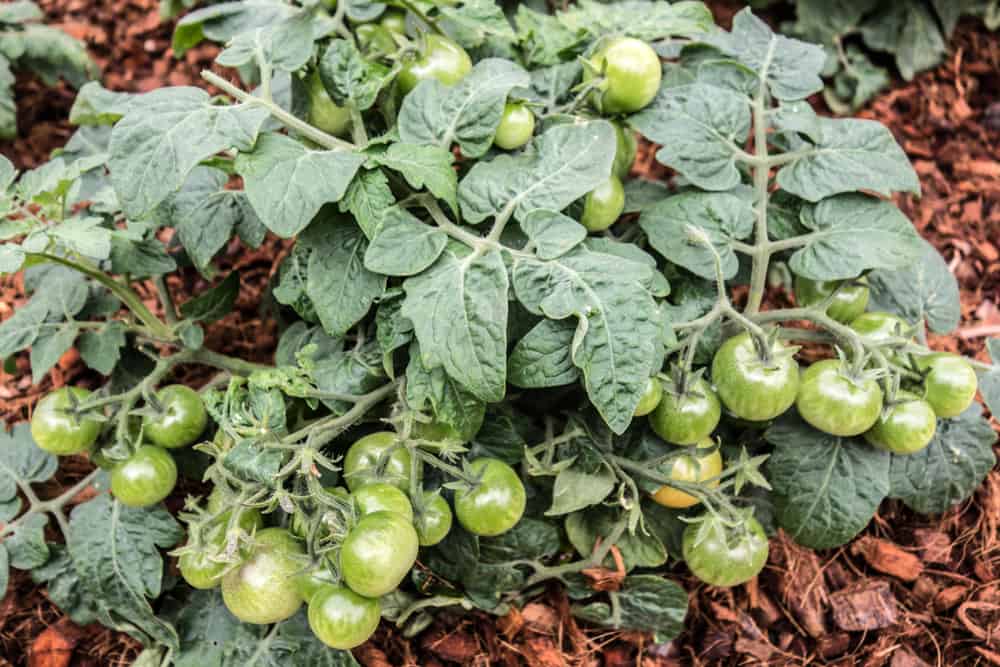
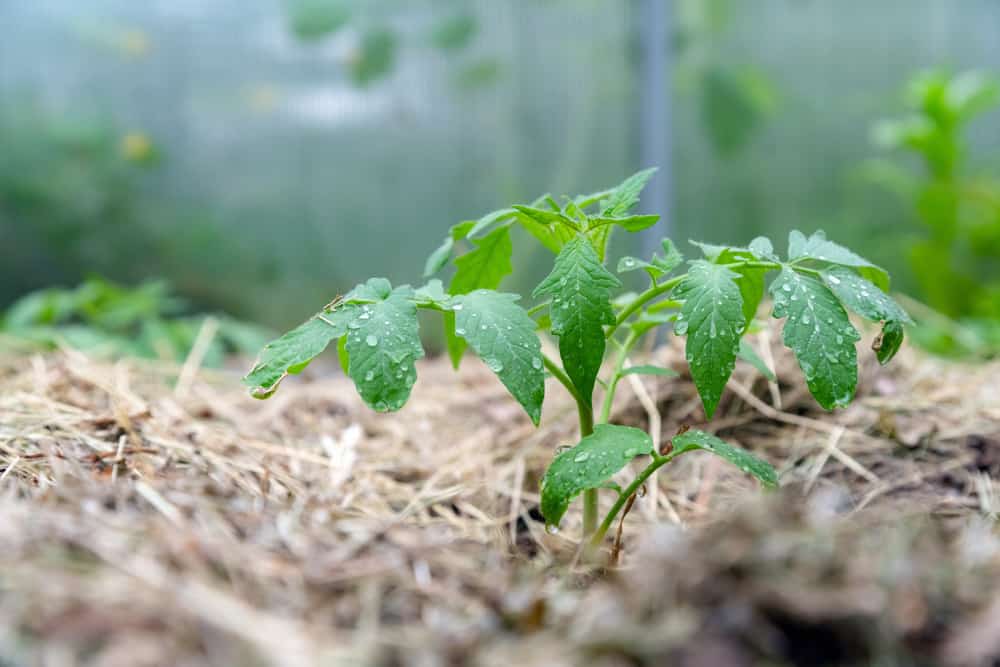
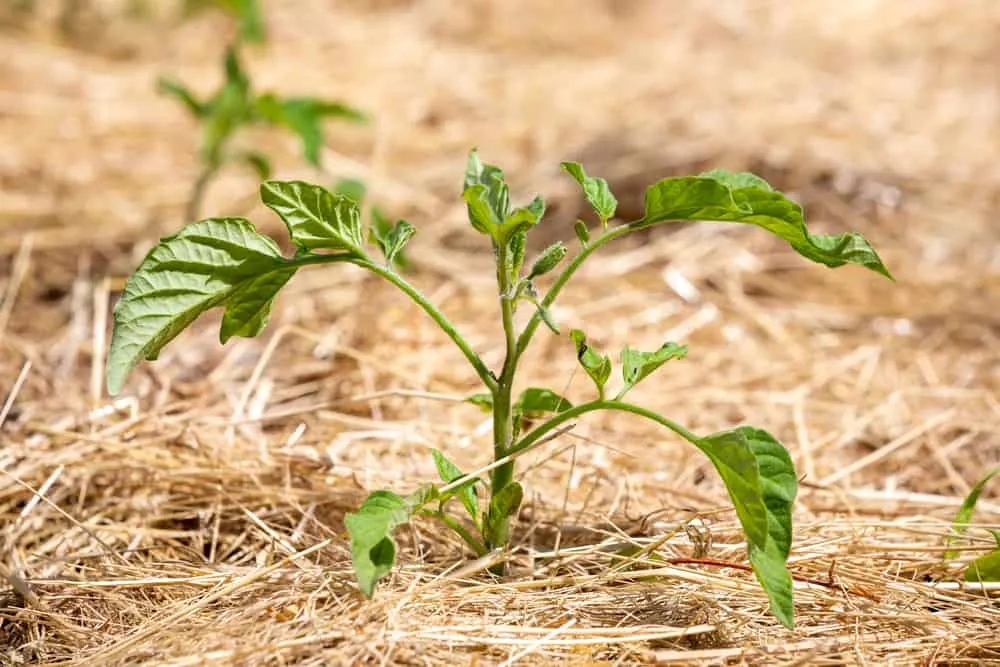
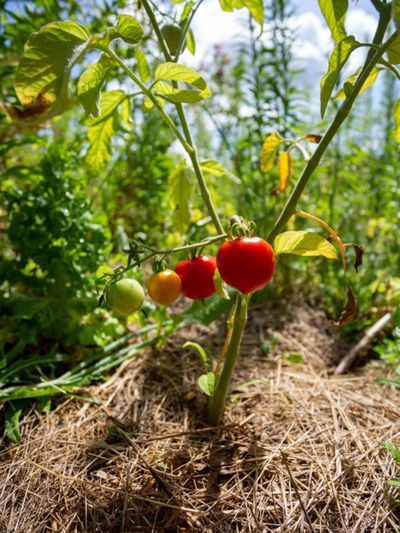
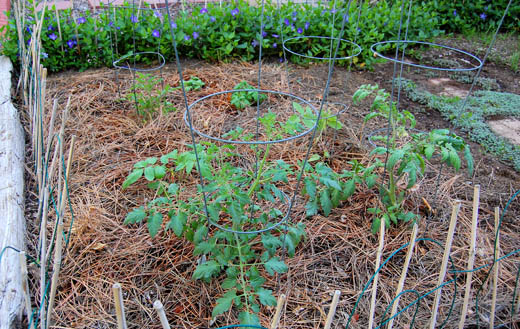

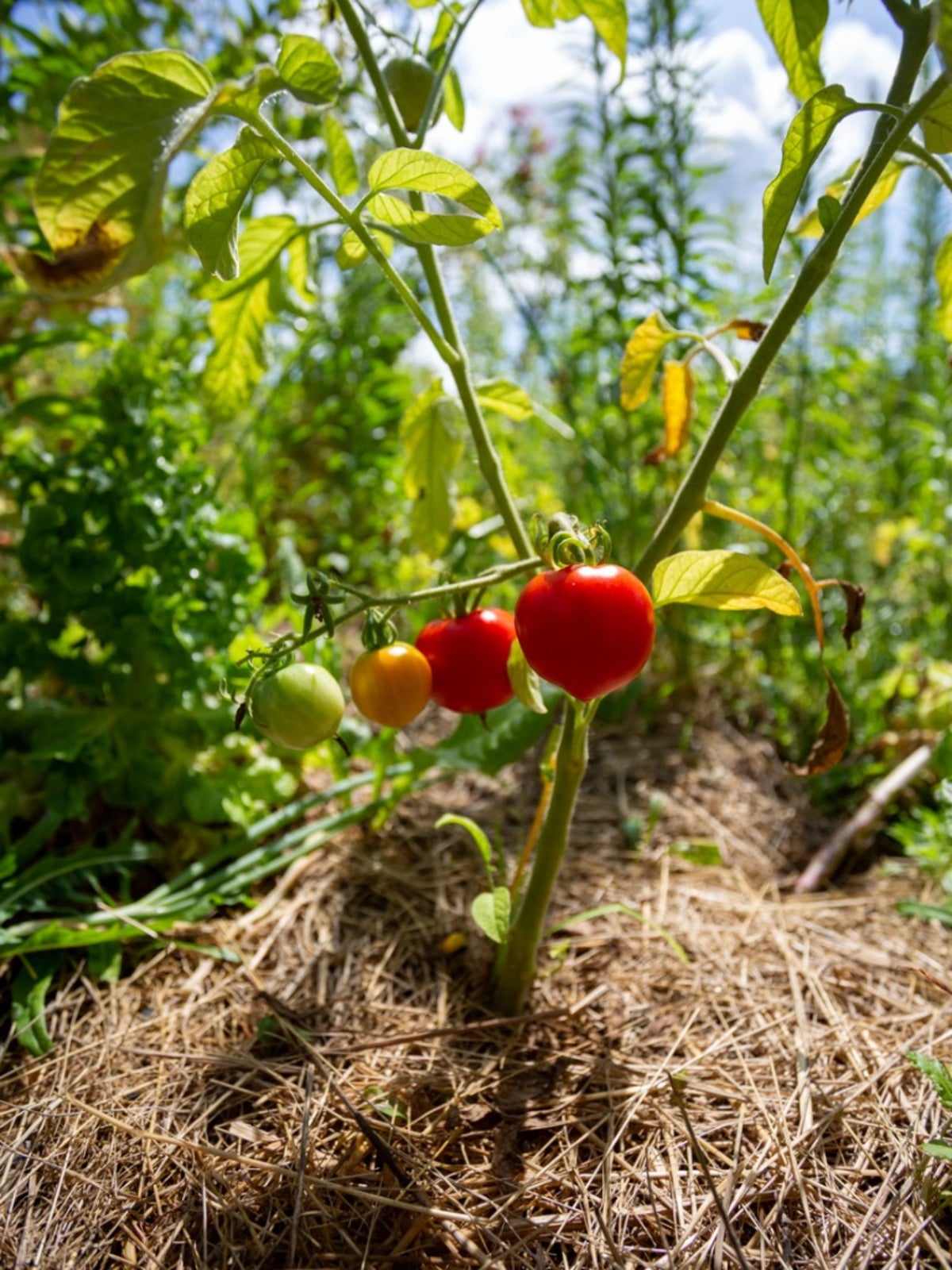


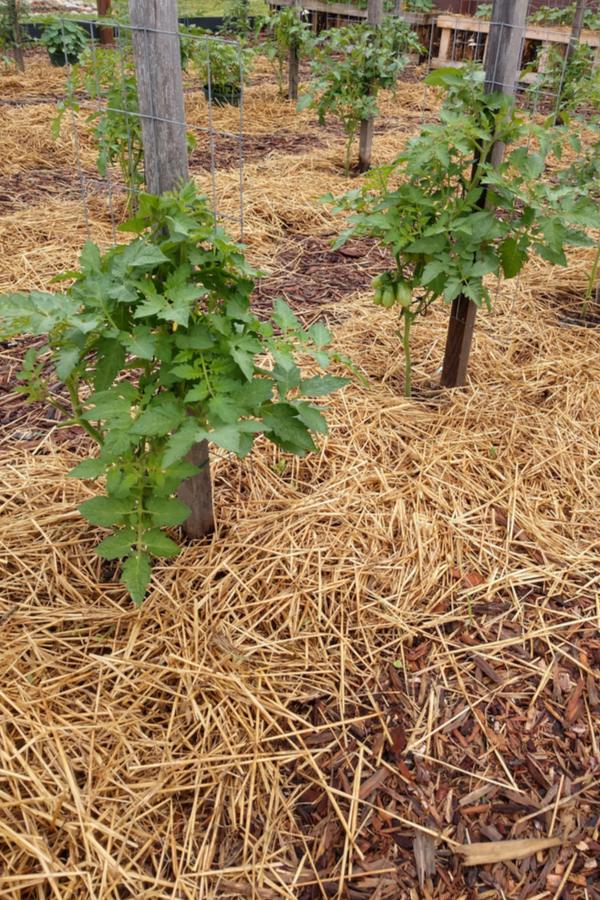
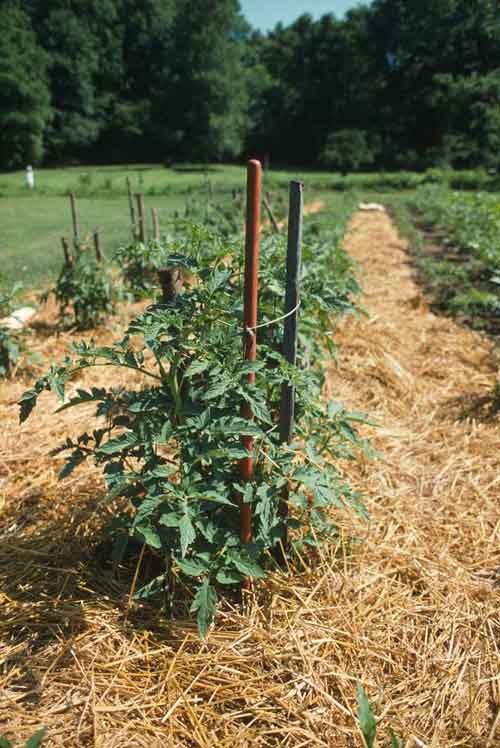

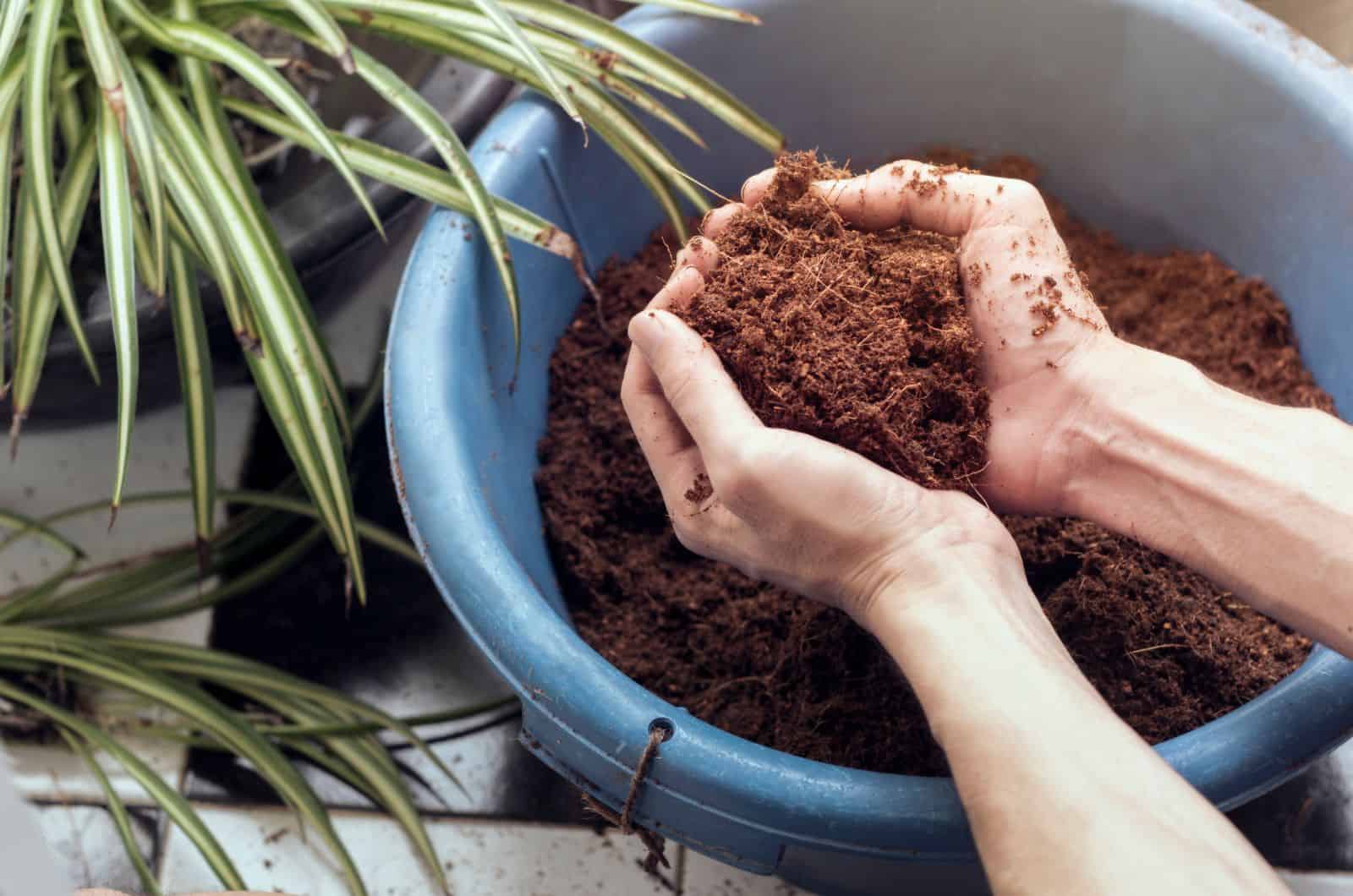

Post a Comment for "The Best Mulch For Tomatoes: Top Picks To Grow Juicy Delicious Tomatoes"